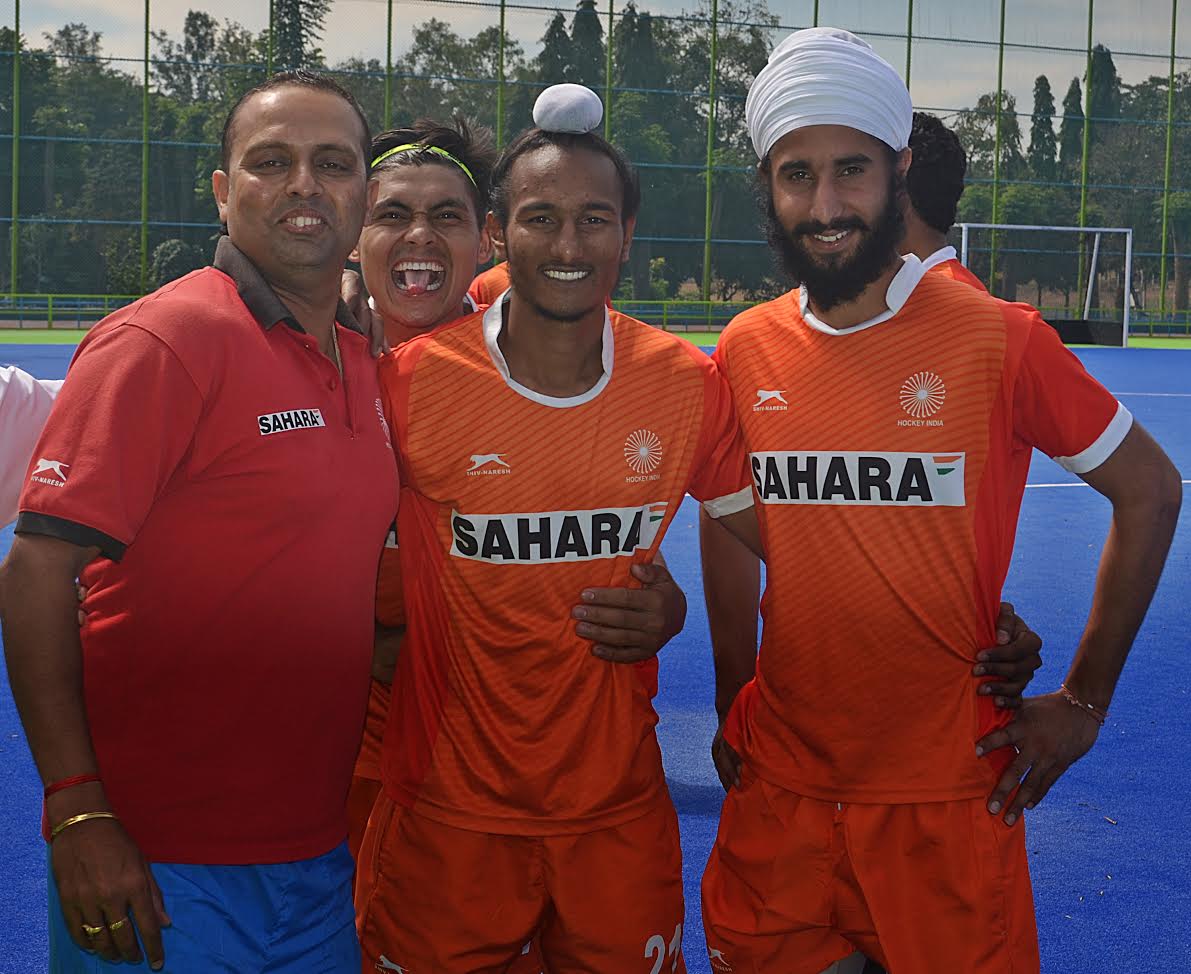
Mreenal Chakraborty: The 'Motivator' Who Helped India Overcome Mental Barriers In The World Cup
When it comes to professional sports, athletes always want a physical edge. Small changes to training and nutrition matter a lot. The difference between the winner and the runner-up is little. Very little.
But whatever be the preparation, it can go in vain if the players’ minds let them down. That’s why mental trainers are there to ensure that the athletes are just as resilient emotionally as they are physically.
Mreenal Chakraborty always had a love for hockey and played for the Indian Railways team from 1993 to 1996. Born and brought up in Kolkata, he was a part of Sports Authority of India for around four years before that. While competing during one of the league matches, he damaged both his cartilage and ligament. After this, he could no longer continue his sports career.
He was disappointed and heartbroken. Being persistent, he did not like being told he could not do something. “A spiritual guru came to my life and asked me if I knew what I don’t know. I was blank for a few seconds,” recalls Mreenal. What the old man said next bewildered him. “He told me, what you know is a drop of water and what you don’t know is like an ocean.”

It was then that Mreenal decided he would do something so others wouldn’t go through similar experiences. He earned his Masters Degree in Human Resource Management from AR University, Cambridge, UK. After that, he enhanced his skills and knowledge to learn Neuro Linguistic Programming (NLP). It is an approach to communication, personal development, and psychotherapy.
Probably one of the first Indian practitioners in NLP, he said, “Improving the emotional state of a player is as important as physical fitness. NLP is like freedom. It’s about achieving what you think you can’t. The outside-in and inside-out approach can have a significant impact on the performance of a sportsperson as it increases the level of commitment towards the game.”
While India won the World Cup after 15 long years at the Major Dhyan Chand Stadium in Lucknow, a lot of factors were in play to help the colts deliver a resounding victory over the Belgians. Coach Harendra Singh has been tirelessly working for the past two years to break the barrier between seniors and juniors, north and south. The defence depth was loaded, and young talents nurtured. He created a healthy atmosphere, and it was fantastic. It was sometime in 2014 when Indian hockey hired mindfulness coach and sports psychologist Mreenal Chakraborty.
Closely associated with Indian sports for more than two decades, Mreenal knows what it takes to win a global event in front of the home crowd. The idea of being able to work on mental conditioning as much as physical conditioning is another crucial issue. Harendra placed emphasis on it, and that’s where Mreenal helped him find new ways of reinforcing mental skills. “A lot of credit goes to the coach (Harendra Singh) for giving me the scope and freedom. He never interfered in my specialised motivation methods.”
King Vikramaditya had famous scholars known as the ‘Navaratnas’ (Nine gems) who attended the court of the legendary ruler. Mreenal feels that Harendra Singh had the same approach. He said, “Full credit goes to him for picking the best people and melding age and youth. He created a team with depth and maturity; zest and judgement.”

While India played near-flawless hockey in front of the home crowd, Mreenal feels it could prove to be the key to the much-needed translation. “In the morning before the match I told them one thing – if you plan for it, prepare for it, and when you want it – it will be your day.”
The sportsman-turned-sports-motivator has managed to draw the attention away from the country’s leading sports personalities in the last few years. And why not? He shared a couple of stories about drag flicker Harmanpreet Singh and Vikas Dahiya. Apparently, when both of them came to the camp for the first time, they did not think they could be Olympians. “I worked on the situation the athletes are in, their physiological state, their feelings, and their behaviour.”
Mreenal did a needs analysis. What they can and can’t do, what they think are their strengths and weaknesses. He rebooted the mindset of the team, something similar to rebooting a computer hard drive. “For any mental trainer, it’s about building a relationship with players. If the athletes like me, they will be more likely to open up to me. The process won’t happen in one or two hours. But it takes one or two years,” he added.
Although his contract runs till 2017, he wants to work with senior Indian hockey squad soon and take off with his mission – which is to bring an Olympic medal in hockey.
For a country that once painted the sport’s greatest works of art, now struggles to read its modern textbooks. But with the way, the Junior World Cup was won, maybe things will change. The game that the boys displayed was a mix of Indian skills and European thrust. And it won’t be wrong to say that India has evolved a new style of hockey.
 All section
All section













